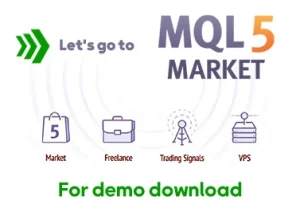Reviewing the Forex Trading Account Arena:
Standard, ECN, and Beyond
Choosing the right forex trading account is crucial for your success as a trader. It goes beyond just picking a broker; it’s about aligning your trading style and risk tolerance with the account’s features and costs. This article dissects the most common forex account types, compares them to alternative options, and highlights key considerations for making an informed decision.
Standard Accounts: The Familiar Playground
Standard accounts are the bread and butter of most forex brokers. They offer a user-friendly interface, typically on platforms like MetaTrader 4 (MT4) or 5 (MT5). Standard accounts make their money through spreads, the difference between the buy and sell price of a currency pair. Wider spreads generally translate to lower commissions, making them suitable for beginners or those who prefer a simpler fee structure.
ECN Accounts: A Glimpse into the Market
ECN (Electronic Communication Network) accounts provide more transparency into market pricing. Instead of the broker acting as a market maker, ECN accounts connect traders directly with other market participants. This can lead to tighter spreads, but also introduces commissions per trade. ECN accounts are ideal for active traders who value fast execution and precise entry/exit points.
ECN Pro Accounts: Geared for High Rollers
ECN Pro accounts take things a step further. These cater to experienced traders with high trading volumes. They offer the tightest spreads and lowest commissions but often require a significant minimum deposit. ECN Pro accounts may also come with features like advanced order types and direct access to liquidity providers.
Beyond the Standard, ECN, and ECN Pro:
The forex landscape offers a variety of specialized accounts to cater to diverse needs:
- Micro and Mini Accounts: Ideal for beginners, these accounts allow trading with smaller contract sizes, reducing the initial capital outlay.
- Swap-Free Accounts: 迎合 (yínghé) (catering to) Islamic principles, these accounts eliminate swap charges, overnight interest fees on leveraged positions.
- Managed Accounts: For those seeking professional guidance, managed accounts hand over trading decisions to experienced money managers.
Trading Accounts vs Investment Accounts
Forex trading accounts differ from traditional investment accounts in several ways:
- Focus: Forex accounts are designed for short-term, speculative trading, while investment accounts target long-term wealth creation.
- Leverage: Forex accounts often offer high leverage, allowing traders to control larger positions with a smaller deposit. This magnifies both profits and losses, making it a riskier proposition.
- Regulation: Forex brokers are regulated differently than investment firms. Be sure to research your broker’s regulatory framework before depositing funds.
Choosing the Right Account: A Balancing Act
The optimal forex account depends on your experience, risk tolerance, and trading strategy. Here are some factors to consider:
- Experience: Beginners might be better off with a standard account to get comfortable with the platform and trading mechanics.
- Trading Frequency: Active traders will benefit from tighter spreads and commission structures offered by ECN or ECN Pro accounts.
- Risk Tolerance: High leverage accounts can be lucrative but also devastating. Choose an account that aligns with your risk appetite.
Conclusion:
Forex trading accounts are not one-size-fits-all. By understanding the different types available and how they compare to traditional investment accounts, you can make an informed decision that empowers your trading journey. Remember, always research your broker’s reputation, fees, and regulatory compliance before committing your capital.
Disclaimer: This article is for informational purposes only and should not be considered financial advice. Please consult with a qualified financial advisor before making any investment decisions.
Happy trading
may the pips be ever in your favor!










